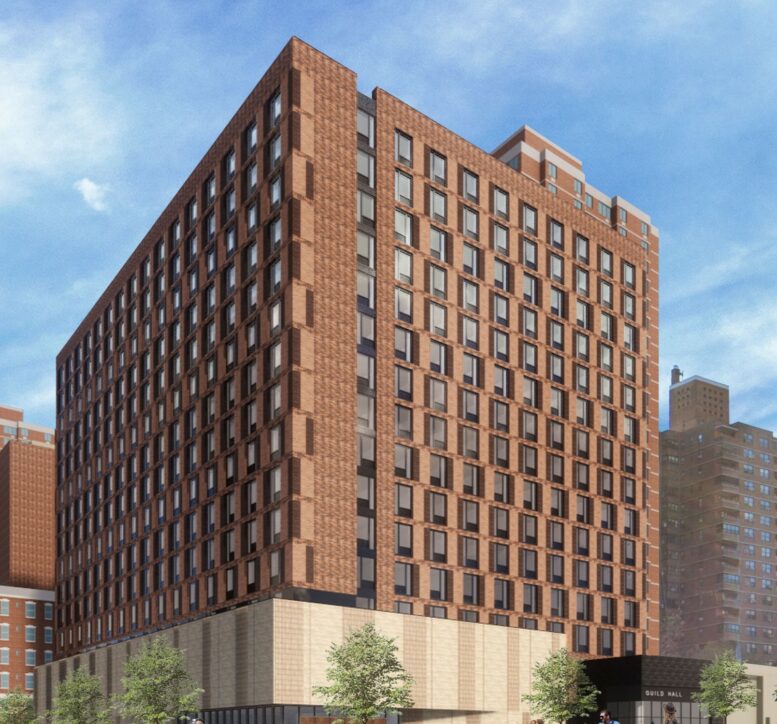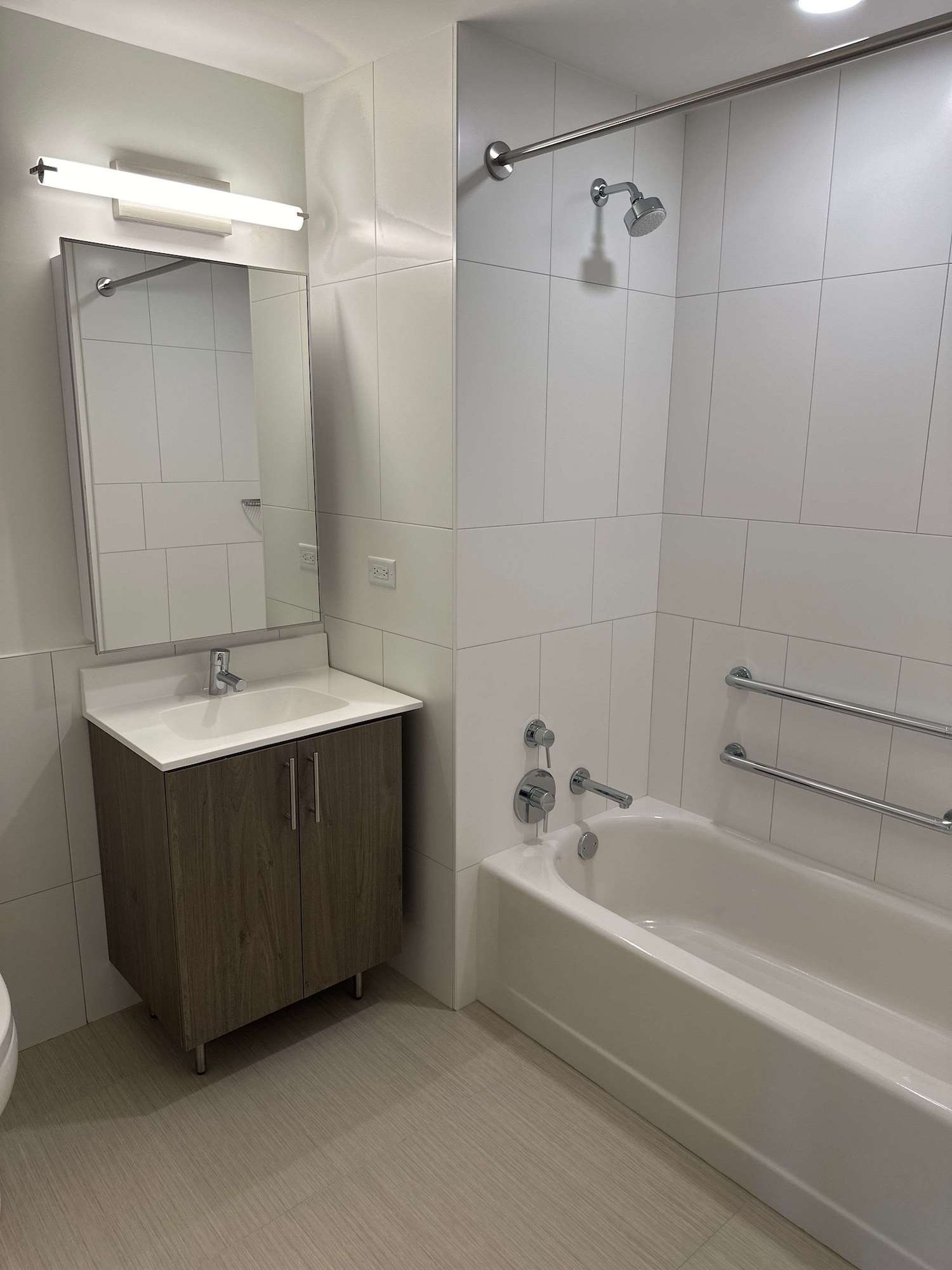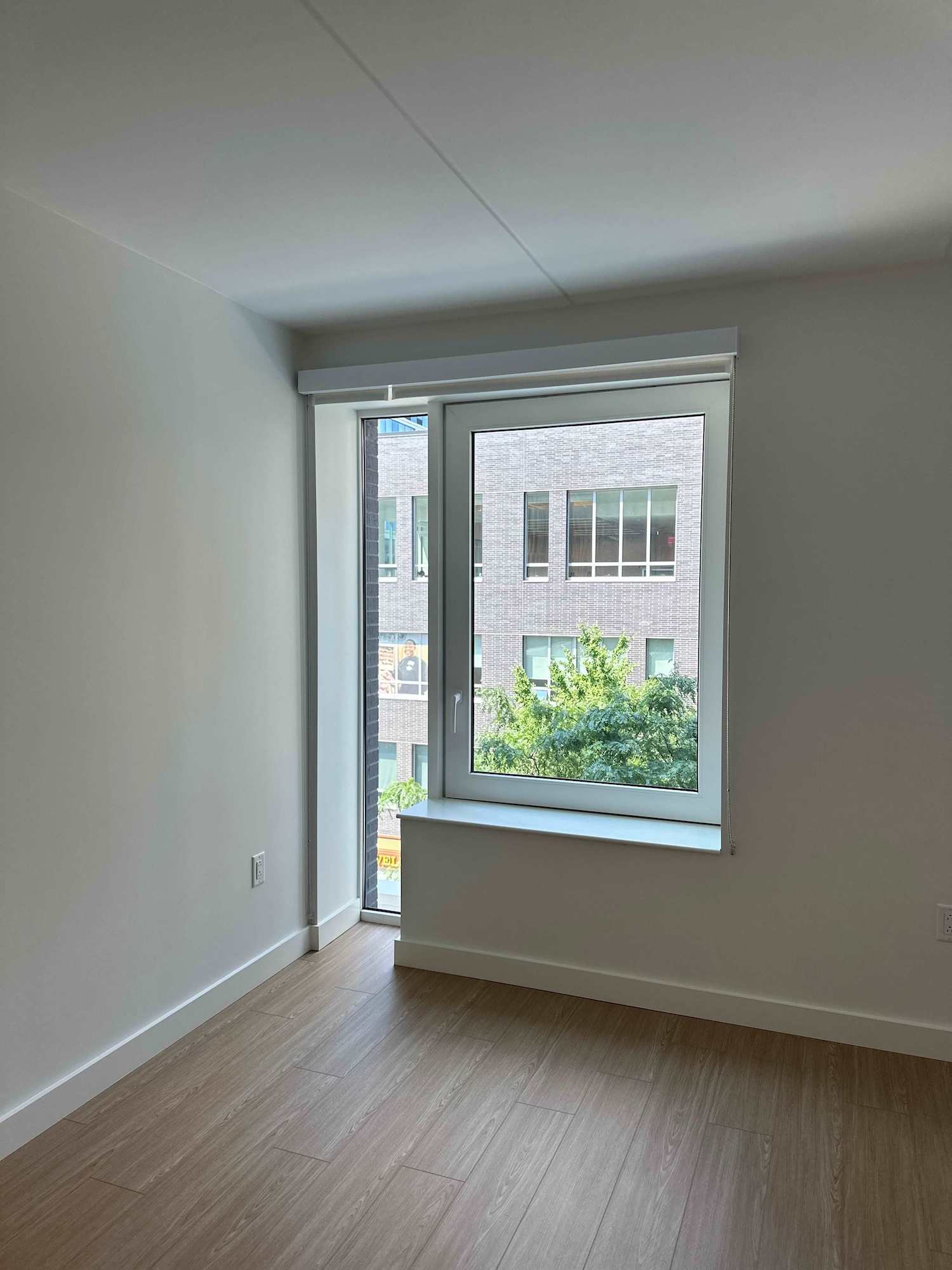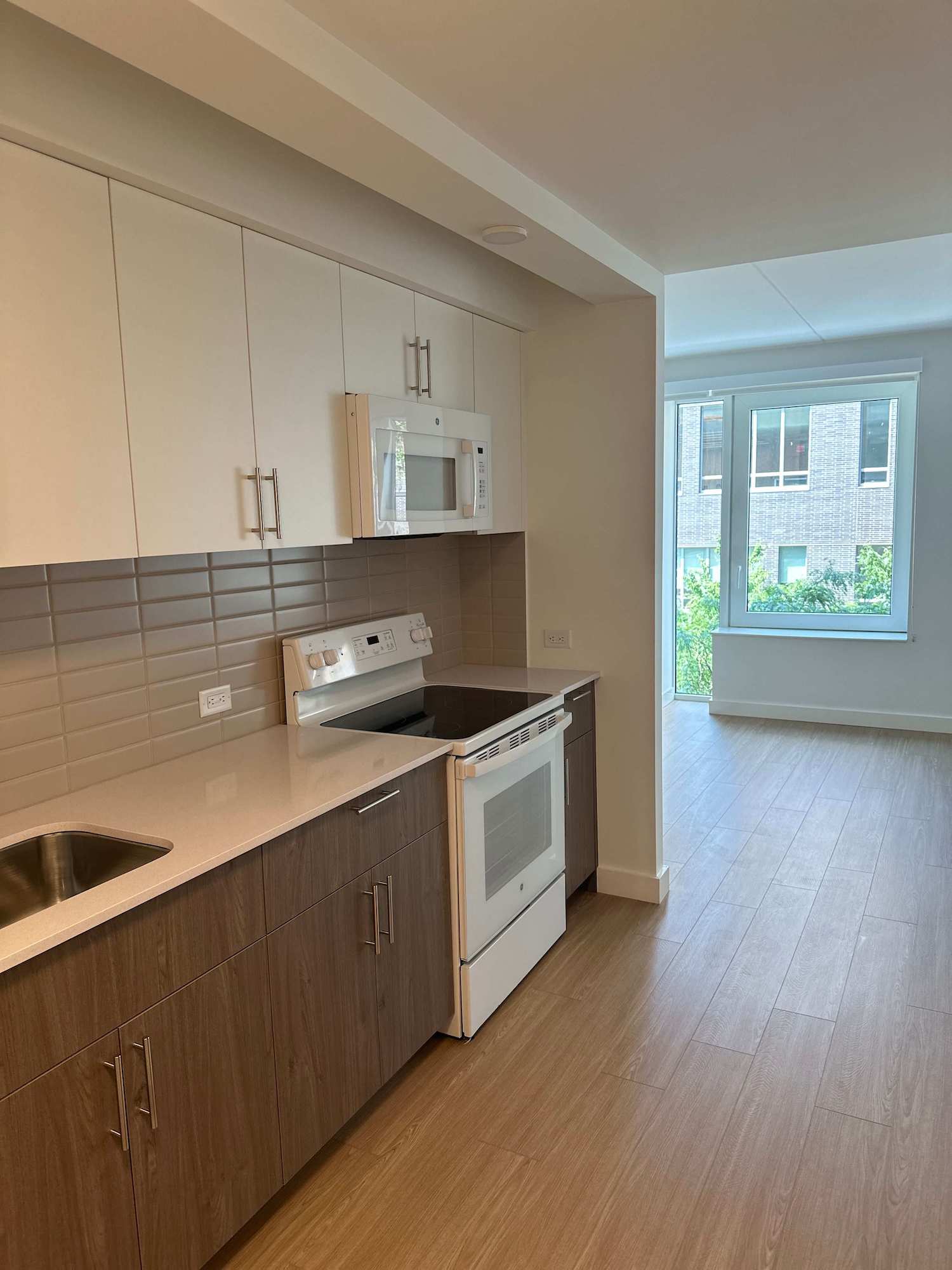Prestigious Award Recognizes Application Help Center for Extraordinary Service by Government Law Office
In First Year, Center Submitted More Than 58,000 Work Authorization, Temporary Protected Status, and Asylum Applications
Innovative Model is First-in-Nation to Combine Government, Law Firm, Corporate, Nonprofit, and University Support to Provide Pro Se Application Support at Scale
New York City Mayor Eric Adams today announced that following the city’s Asylum Application Help Center’s first anniversary, the center has won the American Bar Association’s Hodson Award for distinguished public service for its work helping asylum seekers submit applications for work authorization, temporary protected status (TPS), and asylum. The award — named in honor of the distinguished public service career of the late Major General Kenneth J. Hodson, a former judge advocate general of the U.S. Army — recognizes sustained, outstanding performance or a specific and extraordinary service by a government or public sector law office.
“New York City has done more than any other locality across the country to manage the asylum seeker crisis, and a key part of that work is helping our newcomers take their next steps towards independence by helping them submit vital and complicated work authorization, TPS, and asylum applications,” said Mayor Adams. “This well-deserved award is a credit to our creative and dedicated team, who created this first-in-the-nation center and have supported more than 58,000 applications — that’s tens of thousands of individuals and families who are this much closer to the American Dream. And if we get the federal changes we need to make it easier for even more people to work, we’ll be able to do that much more. My thanks to the American Bar Association for recognizing this incredible, impactful work.”
“Since the first asylum seekers arrived in New York, we’ve worked hand-in-hand with Mayor Adams and his administration to provide resources and support,” said New York Governor Kathy Hochul. “Thanks to our partnership with Mayor Adams and his administration, we’re making real progress on work authorization and case management. Migrants came to this country to work — so we’re coordinating our efforts to put them to work.”
“In just one year, our help center has become a beacon of hope and support, reflecting our city’s dedication to upholding the American Dream and providing essential services to those in need,” said Chief of Staff Camille Joseph Varlack. “This recognition underscores our unwavering commitment to serving asylum seekers with compassion and excellence. We are honored to receive this award and remain steadfast in our mission to serve our community with compassion and care.”
“In just one year, the Asylum Application Help Center has helped complete more than 58,000 applications, work authorizations, and temporary protected status applications,” said Deputy Mayor for Health and Human Services Anne Williams-Isom. “We know that this work is part of a complex federal process, but our teams have worked incredibly hard to help every individual and family that came through the doors of the center. Our teams also enlisted the help of law firms, academic institutions, and philanthropies to build out this effort including support from the state government to create satellite sites to reach even more people. Thank you to our teams leading this work, setting a standard for the nation, and thank you to all those that have contributed over the last year.”
“The backbone of the Asylum Application Help Center is our dedicated corps of supervising attorneys, application assistants, and operational staff who show up every day with creativity and positivity to assist our newest neighbors,” said City Hall Chief Counsel Lisa Zornberg. “We are deeply grateful to all who have answered the call to serve at the center, and for the support of Governor Hochul, the federal government, and our dedicated partners from the educational, nonprofit and corporate community. Together, we have not only helped file over 58,000 applications, but have been recognized by the American Bar Association as a model for the nation.”
“Today, we celebrate a major milestone in our response to this national humanitarian crisis with the one-year anniversary of the Asylum Application Help Center,” said Office of Asylum Seeker Operations Director Molly Schaeffer. “In collaboration with our state and federal partners, the center has helped migrants and asylum seekers submit over 58,000 applications for asylum, work authorization, and TPS. New Yorkers do what we do best in times of crisis: we develop creative solutions, and we’re proud that we’ve created a national model that helps people take the next steps in their American journey.”
“As an immigrant, helping thousands of families take the next step in their journey to security and stability is an honor of a lifetime,” said Asylum Application Help Center Executive Director Masha Gindler. “I am grateful to the American Bar Association for recognizing the hard work and irreplaceable talent of the center’s application assistants, supervising attorneys, and site management staff on our one-year anniversary.”
In the Asylum Application Help Center’s first year, the city has helped migrants and migrant families in the city’s care submit more than 58,000 applications for work authorization, TPS, and asylum. The Asylum Application Help Center has expanded to five locations in two boroughs, and co-hosted successful satellite clinics in partnership with the state of New York, which has supported the center with $40 million in funding; the federal government; Paul, Weiss, Rifkind, Wharton & Garrison LLP; New York Law School; and Educational Alliance. It has welcomed almost 2,000 volunteers from universities, law firms, and corporations. Thousands of asylum seekers assisted by the Asylum Application Help Center have already been granted work authorization, TPS, and asylum.
Helping asylum seekers to file asylum applications helps deliver on another promise made in Mayor Adams’ “The Road Forward: A Blueprint to Address New York City’s Response to the Asylum Seeker Crisis,” released last spring. The Adams administration also continues to strongly urge the federal government to immediately use every tool at its disposal to protect and support newly arrived migrants and asylum seekers — and the municipalities supporting them — by expanding humanitarian parole and temporary protected status and expediting.
Since the asylum seeker humanitarian crisis began in April 2022, New York City has taken fast and urgent action to provide care to the more than 200,000 migrants who have come to the five boroughs and sought assistance from the city — opening more than 200 emergency shelters to provide a roof over the heads of migrants. In addition to the Asylum Application Help Center, the city has also stood up navigation centers to connect asylum seekers with critical resources and enrolled tens of thousands of children in public schools through Project Open Arms. Last August, Mayor Adams hosted “The American Dream Works” — a rally with hundreds of asylum seekers, union members, business leaders, and elected officials calling for expanded work authorization for asylum seekers. Subsequently, President Biden announced an extension of temporary protected status for Venezuelan migrants.
“Educational Alliance is proud to be partnering with the city’s Asylum Application Help Center on a work authorization clinic pilot program at our offices on Manhattan’s Lower East Side,” said Rich Baum, president and CEO, Educational Alliance. “We appreciate the city’s support and innovative effort to make a difference in the lives of new New Yorkers. When asylum seekers are equipped with the tools they need to find work, they are more readily able to thrive and flourish in their new community.”
“New York Law School was excited to join the city in providing pro se asylum assistance,” said Anthony Crowell, dean and president, New York Law School (NYLS). “In addition to sending interns and volunteers to the Center, NYLS served as a satellite site for the Asylum Application Help Center. By hosting 16 asylum clinics on our campus, we gave our students, faculty, alumni, and community volunteers more opportunities to meaningfully contribute to this program and support our new neighbors.”
“Last summer, when New York City called upon its leading institutions of higher education to contribute much-needed people power to aid the newest New Yorkers in filling out applications for asylum, New York University promptly responded to the call,” Georgina Dopico, provost, New York University. “Since then, we have watched with pride as our students, faculty, and staff devoted their energy, wisdom, and compassion to this important effort. And now, we congratulate the team at the Asylum Application Help Center, both for helping tens of thousands of people and for receiving this well-merited award for doing so; we are glad to have been part of the effort.”
“The Colin Powell School is a proud partner of the Asylum Application Help Center,” said Andrew Rich, Richard J. Henley and Susan L. Davis dean, Colin Powell School for Civic and Global Leadership, City College of New York. “By welcoming so many new Americans to New York City, the center embodies the core values, not only of our institution, but also of our students. Over the last year, 30 of our students worked with asylum seekers to navigate a complex application process. We are pleased to have contributed to the center’s efforts in its first year, and we look forward to continuing to provide our students with meaningful and transformative experiences through this relationship.”





